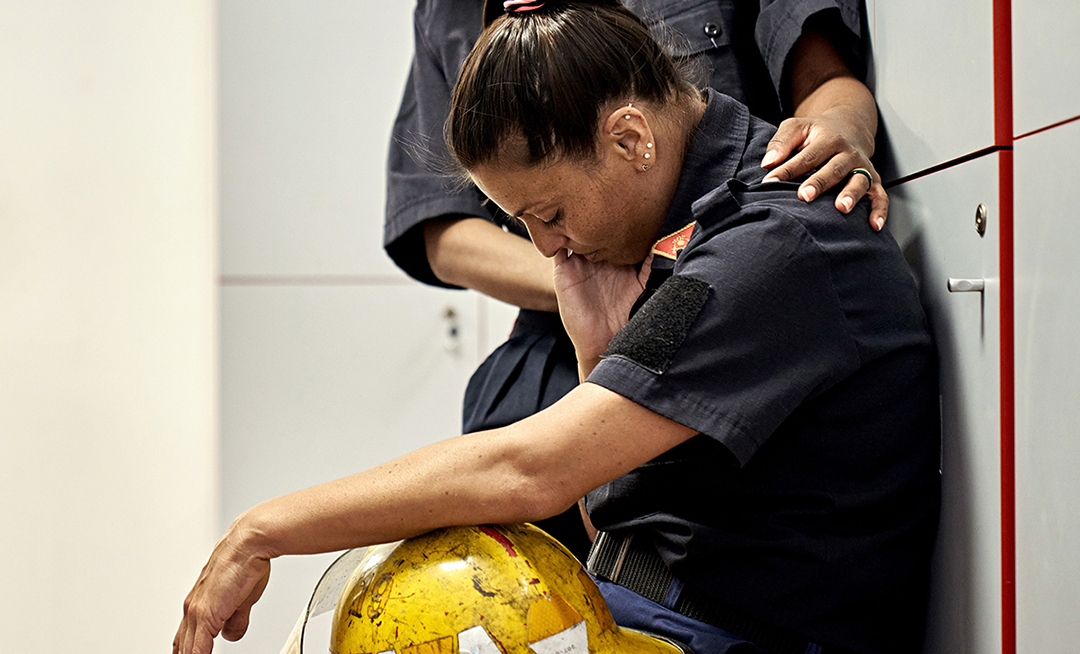First Responders tend to be overlooked when it comes to mental health. This is because they are expected to be strong and able to handle everything that comes their way. The sad reality is that most of them do not have the skills or resources required to cope with the assault on their psyche. The First Responder and First Responder agencies should be aware that responses involving Crime Scenes, potential Crime Scenes, and the scenes of Unattended Death, are some of the most difficult they will face. First Responders are at a significant risk of developing stress-related problems. These issues, if left untreated, may contribute to a number of debilitating physical and mental impairments, including, but not limited to, Post-Traumatic Stress Disorder (PTSD).
This and other mental health problems are expected to increase in the coming years as more responders experience repeated exposure to traumatic events. Despite being trained for such events, first responders are still human beings. They still experience the same feelings of anger and fear as every person does during an emergency state. However, in a post-emergency situation, these emotions are compounded by personal exposure to traumatic events, lack of closure, and having no one who truly understands what they have been through. These symptoms, if left untreated, may contribute to a number of debilitating physical and mental impairments. The CDC has found that occupational stress in first responders can be associated with increased risk of serious mental health issues including hopelessness, anxiety, depression, post traumatic stress and suicidal behaviors such as suicidal ideation and actualized attempts.
One of the most important things for first Responders is be self-aware of the symptoms that may indicate the development of a stress-related mental health problem. An example of this are a number of interviews of first responders after 9/11, who worked 20-hour days, seven days a week with little sleep, proper food or rest with the deleterious task of rescuing the fallen. When asked about the self awareness of the trauma they were experiencing, almost all incredulously said, “I have to care for myself”?
First responders’ work can be mentally stressful, especially when they are responding to traumatic situations. In addition to the daily challenges encountered, these individuals face unique challenges that other professions do not encounter. It is imperative that first responders have access to proper mental health support, in order to maintain their health and wellness while performing their job.
What we now know is that first responder mental health is indeed an issue requiring specific knowledge and intervention. At AICSI we are committed to the welfare of all first responders, and this is why we created Preserving Evidence Integrity at Crime and Death Scenes. Our goal at AICSI is to present our programs in a comprehensive and interesting e-learning format so that first responders may be better equipped in their daily work.
Have any questions regarding Preserving Evidence Integrity at Crime and Death Scenes, continuing education hours or anything else? Our team is ready to answer all your questions.
email: info@aicsi.com

